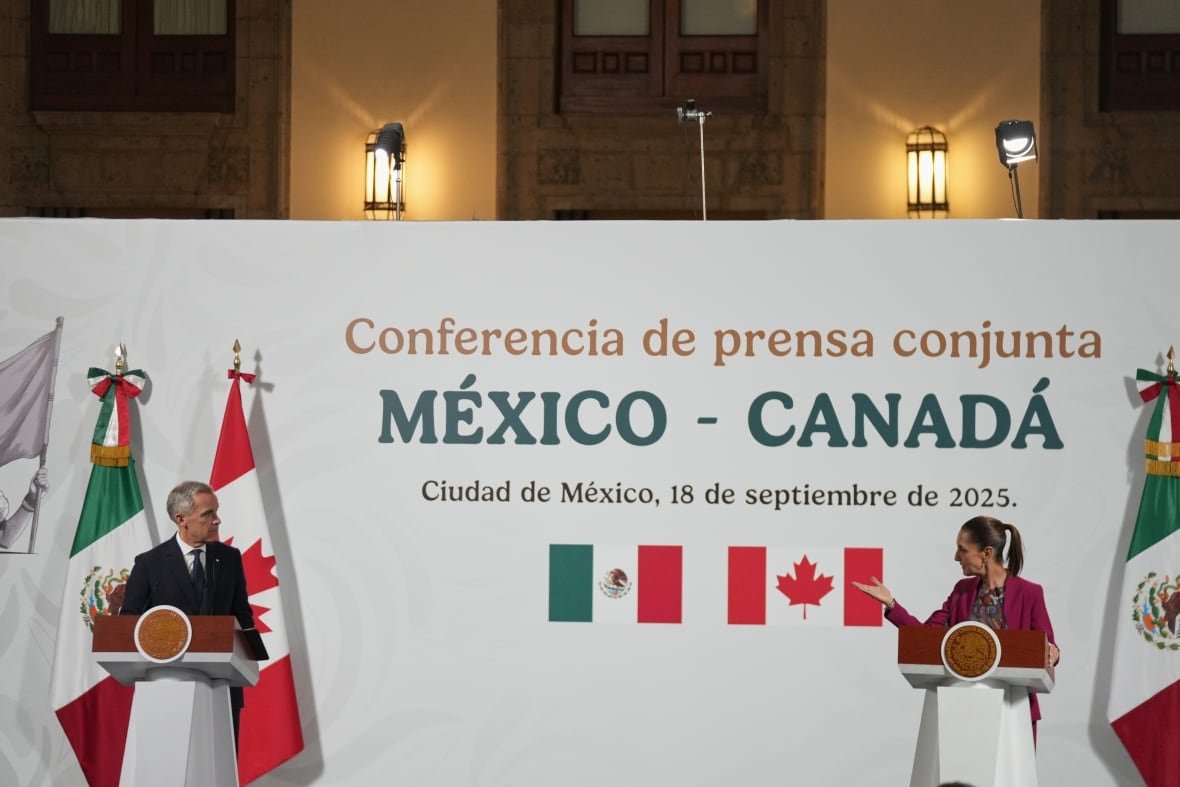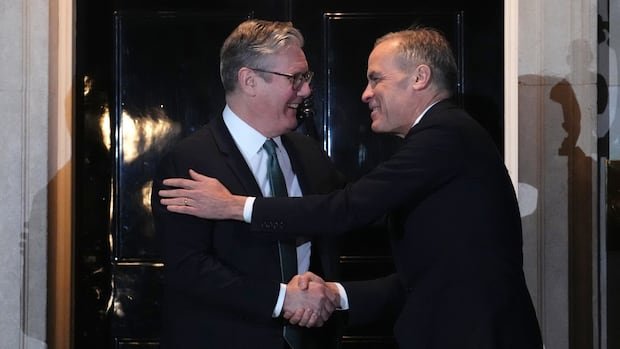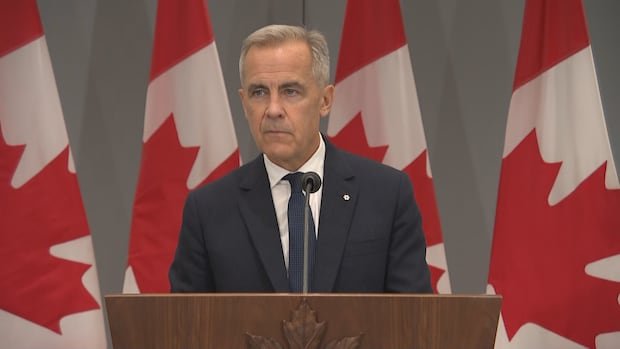Prime Minister Mark Carney heads to the United Kingdom Thursday to attract investment and strengthen ties that he argues are key to securing Canada’s future.
Back in Ottawa, the Conservative Party argues Carney is running away from problems at home and has nothing to show for it.
“He travels a lot and unfortunately with no results,” said Conservative MP Pierre Paul-Hus in French.
“We say that he wants to hide from the House of Commons … when the prime minister is not there to respond, it gives the message that he is not able to respond — or is not interested in parliamentary work.”
The trip marks Carney’s second official visit to London, where he will attend the Global Progress Action Summit — a gathering of left-of-centre and centrist leaders on economic growth.
Over the next two days, Carney is expected to meet with the prime ministers of the United Kingdom, Australia, Iceland, Spain and Denmark, along with energy firms and investment bodies.
“We are building our strength at home, diversifying our partnerships abroad and creating a web of strong global connections,” Carney said in a statement Wednesday.
“These missions will empower our workers with new opportunities and find collective solutions to the world’s most pressing challenges.”
The prime minister is under pressure to show results, says former Conservative cabinet minister Peter MacKay.
“There really should be something that Canadians can see as beneficial to them, especially with a recession looming and the appropriately deemed affordability crisis becoming more and more permanent in the lives of most Canadians,” MacKay said.
Since becoming prime minister last March, Carney has gone to Paris, the U.K., the U.S., Italy, Vatican City, Belgium, the Netherlands, Ukraine, Poland, Latvia, Germany and Mexico — with more trips expected this fall.
While it’s not unusual for a prime minister to travel frequently early in their mandate, MacKay said they must balance that with domestic needs and the perception of leaving too often.
As he ran for the Liberal leadership and during the federal election campaign, Carney highlighted his international experience as proof that he was the best leader to handle the disruptions caused by U.S. President Donald Trump.
Conservative Leader Pierre Poilievre has repeatedly criticized Carney for not yet landing a trade deal with the U.S. (Carney maintains that Canada already has the best deal of any country).
Poilievre has also taken aim at the prime minister’s international trips, saying he came back from Mexico City earlier this month empty-handed.

Carney returned from the United Nations on Wednesday and faced calls from Poilievre during question period to fire Public Safety Minister Gary Anandasangaree, who had cast doubt on the government’s buyback program for “assault-style” firearms in a recorded conversation.
MacKay said the decision to leave the country again so soon could be interpreted as Carney having confidence in Anandasangaree — or that he’d rather rub shoulders with left-leaning governments in Europe.
“That is an impression that can be left with everyday working Canadians,” MacKay said.
Value of trips abroad
Roland Paris, director of the Graduate School of Public and International Affairs at the University of Ottawa, said it’s challenging for any new prime minister to navigate international trips, especially during the busy fall summit season.
“It’s a frustration for the political staff, who are more focused on the domestic side of what the prime minister is doing,” said Paris, who was an adviser to former prime minister Justin Trudeau.
“But the summits are actually really important and a really efficient way for the prime minister to meet many of his international counterparts at the same place at the same time.”
Following a meeting with Chinese Premier Li Qiang, Prime Minister Mark Carney said there’s a range of opportunities to broaden Canada and China’s trade relationship, including clean and conventional energy and agriculture, and that he had an ‘open discussion’ with the premier about steel tariffs.
Paris said that face time is important as Carney tries to deliver on an ambitious agenda and develop a new kind of Canadian economy.
“There’s a risk that by promising so much, he won’t be able to deliver all these things,” Paris said. “But I’ll take that over somebody who’s not meeting the challenge of the day.”
Paris said the upcoming federal budget will be an opportunity for Canadians to see if Carney will “deliver on a lot of these promises.”
Like-minded partners
Along with trade, Carney is also focused on the wars in Ukraine and the Middle East.
Paris said Carney can use this opportunity to expand on his speech at the Council on Foreign Relations in New York, where the prime minister laid out how a middle power, like Canada, can deal with a more fractious world by relying more on itself and other like-minded partners.
The Global Progress Action Summit is also a chance for Carney to reconnect with U.K. Prime Minister Keir Starmer.
A senior government source, who spoke to CBC News about the trip on the condition they not be named, said Carney will follow up with Starmer on the coalition of the willing to support Ukraine and how they can work together to make a Palestinian state a reality.
The same source also said Carney will try to make progress on trade with the U.K., but no major announcement is expected at this time.
That lack of major announcements has been a regular complaint from the Conservatives.
“What is a strategic partnership?” said Paul-Hus of the agreements signed by Carney with international partners over the summer. “Right now it’s all very abstract.”
The source said the prime minister’s visit is about laying the groundwork for future deals that will benefit Canadians.


